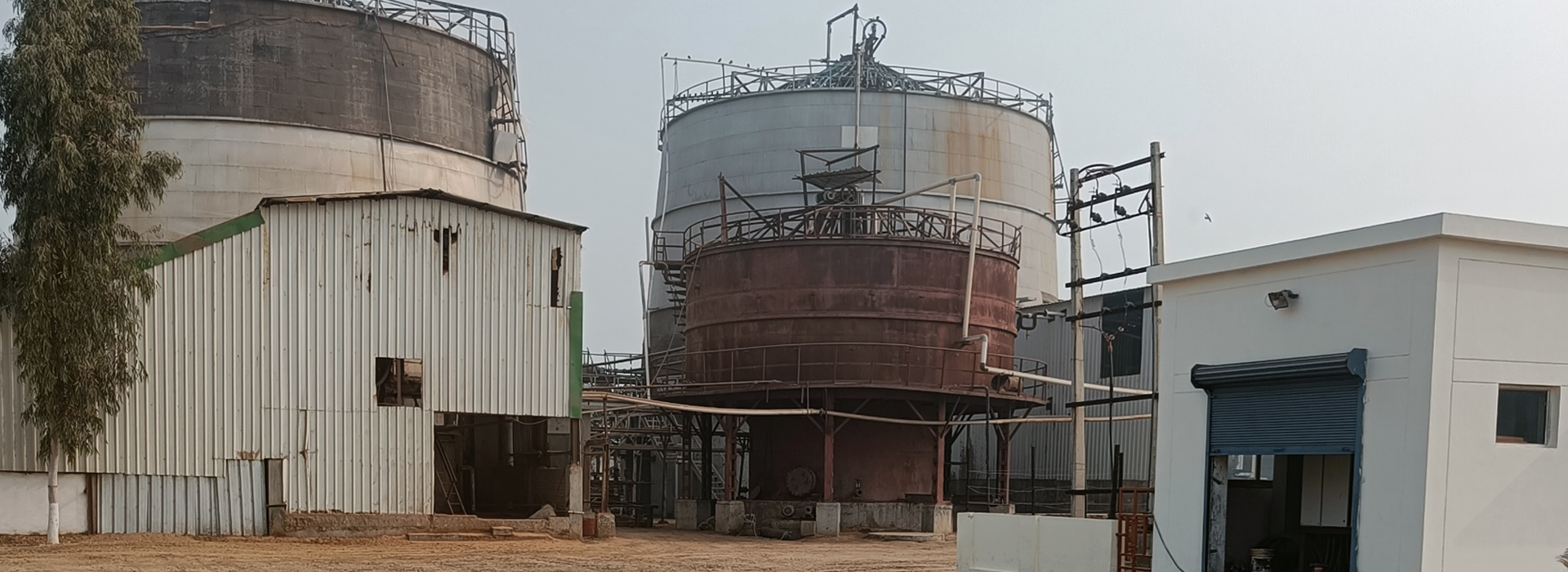- Case Description
- Details of Business Model
- Impact
- Innovation
- About Pioneer
- Geography
Case Description
Organic wastes such as waste paddy biomass is utilised to produce biogas (primarily methane) or Bio-CNG by anaerobic digestion by variety of micro-organisms. The technology is improved and optimized for waste paddy biomass residue in Indian Institute of Technology Delhi (IITD). Converting rice straw to bio-CNG has the potential to turn the problem of paddy straw burning into a solution for clean air utilising generated Bio-CNG in transport sector or for household energy. Sampurn Agri Ventures Pvt. Ltd. (SAVPL) enlisted the services of IITD to further develop and deploy the technology to successfully ferment paddy straw for the production of biogas and fermented paddy straw extract i.e. bio manure.
The processed by-products are liquid slurry and solid biomass (bio manure) both are rich in nitrogen and applied back in agriculture field, opening possibilities for improved food quality. Liquid fertiliser contains all the 17 nutrients available in paddy straw and has an acidic nature which is suitable for promoting crop growth in the high pH soils of Punjab and Haryana. Along with areas with neutral pH, the liquid manure permits the application and growth of crops that require an acidic soil. Also, the bio manure generated is tested and recommended by the Punjab Agriculture University (PAU) and is acceptable to local farmers. PAU conducted extensive laboratory and field trials which prove that the bio manure regenerates the soil that is degraded over the years by the extensive use of chemicals, following the results PAU has officially added fermented paddy straw manure as a recommendation in its Package of Practices.
The biogas produced from biomass (in this case mainly rice straw) is purified to methane with 92-98% purity. Bio-CNG is a clean and safe energy source having various commercial applications, including electricity generation. However, in the Indian context, the major application is expected to be in the transportation sector where it is looked at as an environment friendly alternative to diesel. The programme in India has strategic importance as it aligns with Government’s “Make in India” and “Swatch Bharat” mission while offering opportunities for meeting the ambitious targets of doubling farmers’ income and generating green jobs across rural India. This is also a part of the Government of India’s Sustainable Alternative Towards Affordable Transportation (SATAT) initiative. Government of India has also approved the new Biofuel Policy i.e., National Policy on Biofuels-2018 with aim to increase the usage of biofuels in the energy and transportation sector.
Also, the Punjab Government signed Memorandum of understanding (MOU) with Indian Oil Corporation (IOCL) to set up 400 plants based on this technology.

Figure: Different stages of paddy straw to bio manure
Details of Business Model
- Plant Scale: 70 tonnes of paddy straw per day i.e. 24500 tonnes of paddy straw per annum along with 6 tonnes of cow dung being processed per day to produce 2646 tonnes of BioCNG, 13930 tonnes of Manure and 3500 kl of liquid fertiliser annually
- Plant Area: 100 sq km for catchment area
Financial projections for the project have been prepared based on the information with respect to sale price, operating expenses, product yield etc., on a similar plant that is being operated by SAVPL in Fazilka, Punjab.
For delivering purified and compressed bio-CNG –
- Capital Expenditure (CAPEX): INR 38 crore
- Operational Expenditure (OPEX): INR 12-13 crore annually including feedstock payments of INR 5 crore working at full capacity
- Payback Period: 3.2 years (CII CABL (2021) Analysis)
- Internal Rate of Return (IRR): 29% (CII CABL (2021) Analysis)
Impact
- Utilisation of 24,500 tonnes of paddy straw by this plant will make sure almost 12,250 acres will be managed without burning residual paddy straw.
- Fermented paddy straw manure produced by SAVPL has undergone an intensive three-year trial by Punjab Agricultural University (PAU), resulting in a 20% yield increase on an average.
- Fermented paddy straw manure has a high water retention capacity which helps reduce the irrigation requirement in turn improving water use efficiency.
- Bio-CNG have the potential to reduce our fuel import bill.
- Bio-fertilisers (liquid bio-fertiliser and green manure combined) produced from bio-methanation can potentially substitute 40% of the total fertiliser consumption, reducing a burden of INR 20,000-30,000 crore spent by the Government of India on fertiliser subsidies.
- Besides these benefits there is upfront job creation for almost 35 personals, comprising of 5 skilled workers, 25 unskilled workers and 5 management/administrative staff. In addition to these numerous indirect local jobs will be created in feedstock cultivation, harvesting, transport, engineering, construction, finished fuel transport, sales and equipment manufacturing.
Innovation
- The SAVPL pioneered the first indigenous rice straw-based Bio-gas plant based on ground in Fazilka, Punjab and the plant has been in operations since 2015.
- The plant utilises a circular model where farmers can exchange their surplus paddy straw for bio-fertiliser/green manure. This process is viable for rural clusters surrounding the plant.
Geography
Village Painchawali, District Fazilka, Punjab




